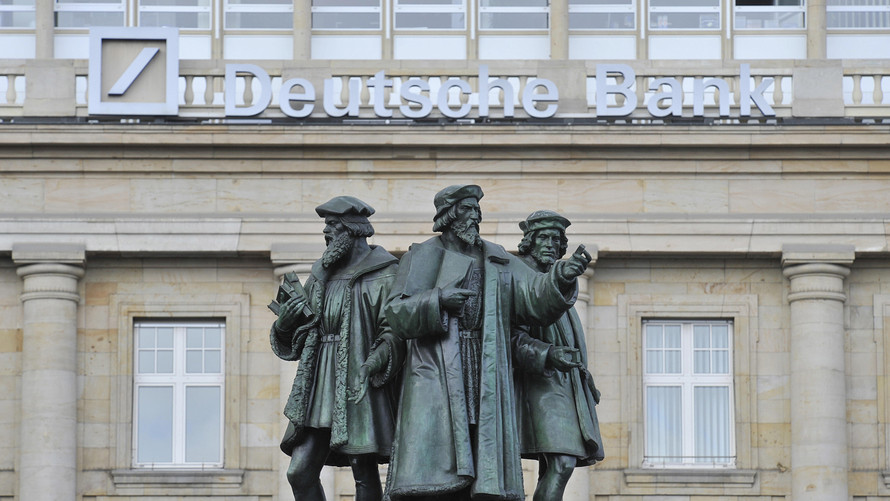
European stocks ended with a slight gain Monday, extending a two-week rally, helped by what appeared to be a pause in the ongoing trade skirmish between the U.S. and China, the world’s two biggest economies.
The rally was limited, however, by a drop for stocks with Russian links after fresh U.S. sanctions announced on Friday.
How markets are moving
The Stoxx Europe 600 SXXP, +0.13% added 0.1% to close at 375.30, building on last week’s gain, which was the equity gauge’s second weekly rise in a row. The pan-European benchmark remains down 3.6% for the year.
Germany’s DAX 30 DAX, +0.17% rose 0.2% to end at 12,261.75, while France’s CAC 40 PX1, +0.10% tacked on 0.1% to finish at 5,263.39. The U.K.’s FTSE 100 UKX, +0.15% inched up 0.2% to close at 7,194.75.
The euro EURUSD, -0.0081% traded at $1.2317, up from $1.2283 late Friday in New York.
What’s driving markets
Worries about a global trade war have persisted for weeks. While the Trump administration exempted most countries from recent U.S. tariffs on imports of steel and aluminum, its targeting of Chinese goods has fanned fears.
Yet concerns appeared to be ebbing on Monday, as U.S. officials on Sunday softened some of the rhetoric, noting that any penalties on Beijing aren’t imminent and there is ample time to work out a deal and step back from a possible trade war.
President Donald Trump himself struck a hopeful note in a tweet Sunday, as he suggested China and the U.S. can reach an accord, absent a trade war.
Meanwhile, some Chinese officials on Monday talked tough, saying frictions were the fault of the U.S., and negotiations were not possible under current conditions, according to media reports.
In other geopolitical news, Trump has warned Syria’s leader, Bashar al-Assad, could pay a “big price” for a suspected chemical-weapons attack, raising the possibility that the U.S. could launch a military strike in the region.
What strategists are saying
The American president’s tweet about China “suggested the war of words and threats of tariffs to date have just been part of the negotiating process,” said Sue Trinh, head of Asian foreign-exchange strategy for RBC, in a note.
“Attention now turns to China’s response, if any,” she added, noting that Chinese President Xi Jinping is due to deliver a speech Tuesday.
“Shares linked to Russian oligarchs took a bruising thanks to newly announced U.S. sanctions, said Jasper Lawler, London Capital Group’s head of research, in a note Monday. “The sanctions make it almost impossible for these Russian firms and their billionaire owners to transact in U.S. dollars.”
Stock movers
Deutsche Bank AG’s DBK, +1.60% DB, +1.01% rose 1.2% following news the German lender has replaced its British chief executive, John Cryan, with the senior German head of its retail bank, Christian Sewing. It was one of the Stoxx Europe 600’s largest gainers.
The switch signals a less ambitious future after years of grim financial results and sputtering attempts to regain a spot among global investment-banking powerhouses.
Swiss engineering company OC Oerlikon Corp. AG’s stock OERL, -8.41% dived 8.4%. Analysts blamed the fall on the U.S. sanctions unveiled Friday. They target Russian individuals including Viktor Vekselberg, whose holdings include an Oerlikon stake.
Polymetal International PLC POLY, -18.37% — a London-listed miner with extensive operations in Russia — tumbled 18%, and an Austrian lender exposed to the country — Raiffeisen Bank International AG RBI, -11.66% — slid 12%
Novartis AG’s stock NOVN, -0.13% edged down 0.1% after the Swiss pharmaceutical company said it plans to buy U.S.-based gene-therapy company AveXis Inc. AVXS, +81.57% for $8.7 billion.
Rolls-Royce Holdings PLC shares RR., +1.24% rose 1.2% after the British engines maker agreed to sell its German fuel-injection systems supplier L’Orange to U.S. control-systems provider Woodward Inc. WWD, +3.33% for an enterprise value of 700 million euros ($860 million).
Economic data
An April reading on eurozone investor confidence showed a drop, with the Sentix index falling to 19.6 from 24 in March, according to FactSet data. The consensus forecast was for a reading of 20, according to Reuters. The drop was due to lower economic expectations, which turned negative for the first time since July 2016.

